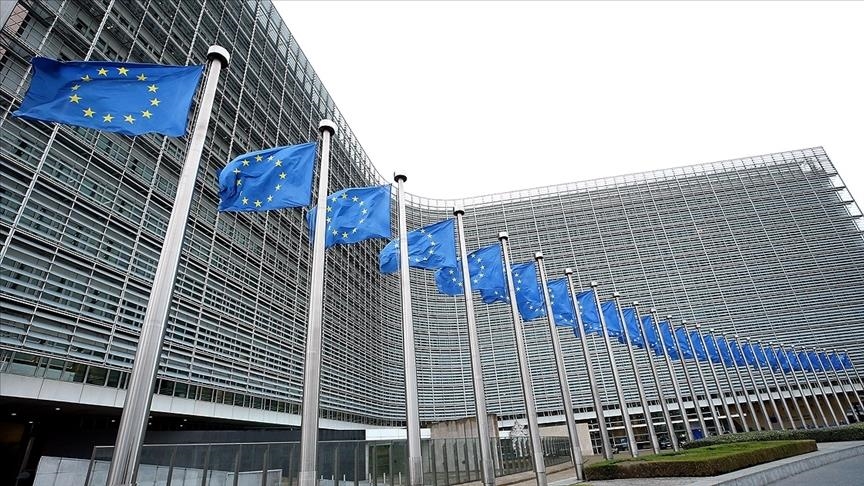EU-Russia trade plummets to historic low
Monthly trade falls from $30.4B before Ukraine escalation to $6.5B

BRUSSELS
Trade between the EU and Russia has experienced significant contraction over the past three years since the war in Ukraine escalated, reaching a dramatic low according to the most recent statistics.
The European Union imposed a series of sanctions on Russia in response to its invasion of Ukraine in February 2022, which marked a new phase in the Russo-Ukrainian conflict that had begun in 2014. These sanctions have led to a sharp decline in bilateral trade between the two regions.
In 2021, before the invasion, Russia was the EU's fifth-largest trading partner, contributing 5.8% to the EU’s total goods trade with the world.
Before the war's escalation, the EU was Russia’s largest trading partner, accounting for 36.5% of Russia’s imports and 37.9% of its exports. In 2021, the total trade between the EU and Russia amounted to €257.5 billion ($270.2 billion).
In February 2022, the EU imported $22.4 billion worth of goods from Russia, while exports stood at $7.9 billion, according to official figures.
However, the EU faced substantial costs throughout the year, particularly for energy products such as natural gas.
EU imports from Russia peaked at $23.3 billion in March 2023, but by September of the same year, they had dropped to $3.2 billion, a staggering 86% decline since the onset of the war.
Russian imports into the EU also fell sharply, reaching as low as $2.8 billion.
The total monthly trade volume between the EU and Russia fell from $30.4 billion in February 2022 to $9.6 billion in February 2023, and further dropped to $6.5 billion by the same time this year.
By September 2024, bilateral trade had further contracted to $6.2 billion, according to the latest data.
In the third quarter of 2024, EU exports to Russia fell by 58%, while Russian imports to the EU plummeted by 86% compared to the same period in 2022.
The EU’s trade deficit with Russia peaked at $48.3 billion in the second quarter of 2022 due to soaring energy prices, but by the third quarter of 2024, this deficit had significantly decreased to just $630.3 million, reflecting the impact of sanctions and falling energy prices.
Despite the ongoing sanctions, the EU has not completely halted trade with Russia in critical sectors, such as natural gas, liquefied natural gas (LNG), fertilizers, and nickel.
Numerous sanctions on Russia
The EU has introduced 14 sanction packages to undermine Russia’s economic base and restrict its access to essential technologies and markets, thereby limiting its ability to respond to the sanctions.
Several Russian banks were banned from the SWIFT payment system, while Russia’s access to European financial markets was restricted. Transactions involving Russia’s Central Bank and the Russian Regional Development Bank (RRDB) were blocked, preventing Russian nationals from depositing large sums in European banks.
A price cap was imposed on Russian oil and its related products transported by sea. The EU halted the import of crude oil and coal from Russia, ceased the purchase of liquefied petroleum gas (LPG) from Russia, and enforced a complete ban on exports of goods and technologies to Russia. Additionally, a ban was placed on new investments in Russia’s energy and mining sectors.
Meanwhile, Russia’s aircraft were barred from European airspace, and European ports were closed to Russian ships. Exports to Russia of European aviation, maritime, and space technology products were also prohibited.
Furthermore, the EU banned the export of both civilian and military-grade defense products to Russia, including those used in drone production, weapons, munitions, chemicals, laptops, and more.
Russia was also prohibited from exporting luxury goods, and strict quotas were imposed on Russian imports of materials such as potassium chloride, steel, iron, cement, copper, diamonds, jewelry, and gold.
*Writing by Emir Yildirim in Istanbul
Anadolu Agency website contains only a portion of the news stories offered to subscribers in the AA News Broadcasting System (HAS), and in summarized form. Please contact us for subscription options.







